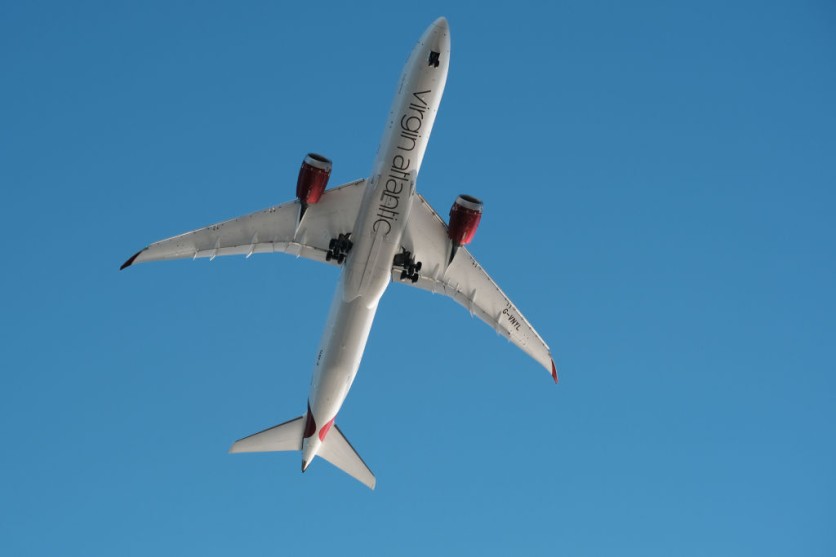The UK Civil Aviation Authority (CAA) has granted Virgin Atlantic approval for what is hailed as the world's first transatlantic flight powered solely by sustainable aviation fuels (SAF).
According to AFP, this landmark decision follows rigorous technical assessments of the proposal by Virgin Atlantic, supported by a coalition of major companies, including Boeing, Rolls-Royce, and BP, among others.
"This permit not only allows Virgin Atlantic and others to showcase their commitment to sustainability, but also serves as an example of how the industry is always exploring new technologies," CAA chief executive Rob Bishton said in a press statement.

Virgin Atlantic Flight to Use Sustainable Fuels
The aviation sector is known for its substantial carbon footprint as it emits both carbon dioxide and non-CO2 pollutants that significantly contribute to climate change.
The industry is now turning its attention towards SAF, a biofuel with lower carbon emissions compared to conventional jet fuel, though it currently comes with a higher production cost.
While airlines are enthusiastic about the potential of SAF to decarbonize the industry, they caution that the transition will be gradual and costly, possibly leading to an increase in ticket prices and a potential slowdown in passenger demand growth, AFP reported.
Rob Bishton, the Chief Executive of the CAA, stressed the regulatory body's pivotal role in promoting sustainability within the aviation sector. He underlined that this authorization not only allows Virgin Atlantic and its counterparts to underscore their dedication to sustainability but also serves as an illustration of the industry's continuous pursuit of innovative technologies.
Read Also : Expect More Rough Flights Due to Climate Change Increasing Turbulence, According to Study
Virgin Atlantic: 'We Can Make It, We Can Fly It'
With the CAA's issuance of this permit, Virgin Atlantic is now poised to pursue approvals from aviation authorities in the United States, Ireland, and Canada, given that the flight will traverse the airspace of these respective nations.
The CAA conducted a thorough assessment of various facets of the proposed flight, including collaborative ground trials with Rolls-Royce involving a Trent 1000 engine powered exclusively by SAF.
This undertaking, partly subsidized by the UK government, acts as a proving ground to showcase the feasibility of propelling aircraft with sustainable fuels, according to the CAA.
Virgin Atlantic's CEO, Shai Weiss, acknowledged that reaching this milestone necessitated extensive cooperation among consortium partners and the government.
He affirmed the airline's commitment to achieving 10% SAF usage by 2030 and urged the government to play a role in fostering a domestic SAF industry, noting: "We know that if we can make it, we can fly it."
Related Article : FAA Says People Flying Drones at Super Bowl to Face Consequences: $30,000 Fine, Criminal Charges, and Drone Confiscation Included

ⓒ 2026 TECHTIMES.com All rights reserved. Do not reproduce without permission.




